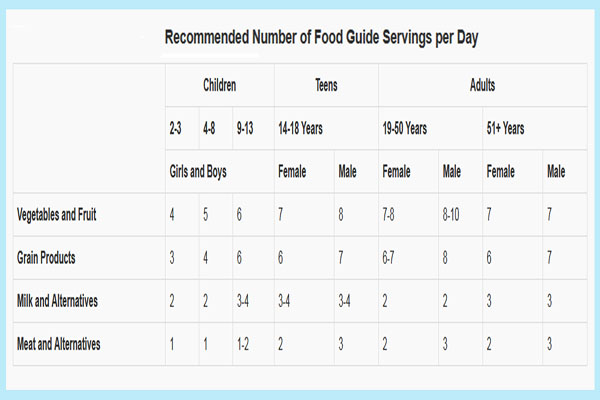Health Pages
Healthy Eating
Healthy Eating
Canada's Food Guide to Healthy Eating recommends that only up to 30% of your calories come from fat. This works out to about 65 grams of fat per day for the average woman (25-49 years) and about 90 grams of fat for the average man (25-49 years). Older adults (50 + years) about 60 grams of fat per day.
Canada's Food Guide to Healthy Eating divides foods into food groups and suggests a range of servings per day. This ensures that you get the more than 50 different nutritients you need daily.
Feel better today and tomorrow, and help reduce your risk of illness, including heart disease. Discover how your diet compares with Canada's Food Guide to Healthy Eating and the helpful tips will show you how small changes can bring big improvements.
Check Canada Food Gide for more information.
YOUR DIETARY NEEDS
The number of servings you need per day can vary, depending on a variety factors such as:
 your age
your age
 your activity level
your activity level
 your body size
your body size
 whether you are male or female, etc.
whether you are male or female, etc.
EAT MORE FIBRE
Fibre is found only in foods of vegetable origin, like whole grains, vegetables, fruits and legumes. Regularly eating a certain kind of fibre, called "soluble," can help bring blood cholesterol down. It is found mainly in: legumes (chick peas, kidney beans, lentils, etc.); green vegetables (the darker the color of the vegetable, the higher the fiber content); fruits and vegetables rich in pectin (tomatoes, apples, oranges, strawberries, etc); cereals with psyllium; oat bran and oatmeal.




